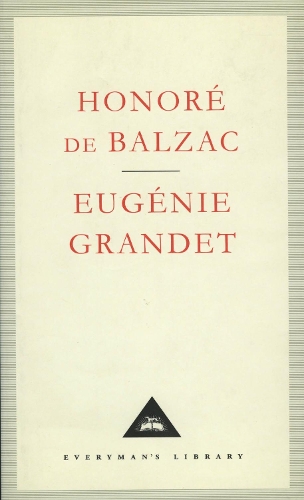
Eugenie Grandet
(Hardback)
Publishing Details
Eugenie Grandet
By (Author) Honore De Balzac
Everyman
Everyman's Library
2nd December 1992
United Kingdom
Classifications
Physical Properties
Hardback
288
Width 135mm, Height 210mm, Spine 21mm
411g
Description
"Who is going to marry Eugenie Grandet" This is the question that fills the minds of the inhabitants of Saumur, the setting for Eugenie Grandet (1833), one of the earliest and most famous novels in Balzac's Comedie humaine. The Grandet household, oppressed by the exacting miserliness of Grandet himself, is jerked violently out of routine by the sudden arrival of Eugenie's cousin Charles, recently orphaned and penniless. Eugenie's emotional awakening, stimulated by her love for her cousin, brings her into direct conflict with her father, whose cunning and financial success are matched against her determination to rebel.
Author Bio
Honor de Balzac was born 20 May 1799, the second son of a civil servant. He was brought up away from his family home, first in the care of a wet-nurse and then at a strict grammar school at Vendme. Balzac then studied at the Sorbonne, before entering training to become a lawyer, like his father. At the age of twenty, to the consternation of his family, he announced his intention to abandon law and become a writer. His early literary works met with little success, and Balzac's various business ventures as a printer and publisher also foundered. In 1829, he began to conceive a grand design for a series of novels comprehensively portraying French society in the eighteenth century. Balzac's Comdie humaine became his life's work, comprising 91 separate works depicting private and public life in the town and country, in politics and the military. Masterpieces of the Comdie humaine include Eugnie Grandet, Pre Goirot, The Wild Ass's Skin and The Black Sheep. Many of his novels were critically acclaimed on publication, and went on to profoundly influence authors from Marcel Proust and Gustave Flaubert to Charles Dickens and Henry James. At the age of fifty-one, Balzac was finally able to marry the recently widowed Evelina Hanska, whom he had loved for eighteen years. But by this time he was in very poor health and Balzac died only five months after his wedding, on 18 August 1850.
